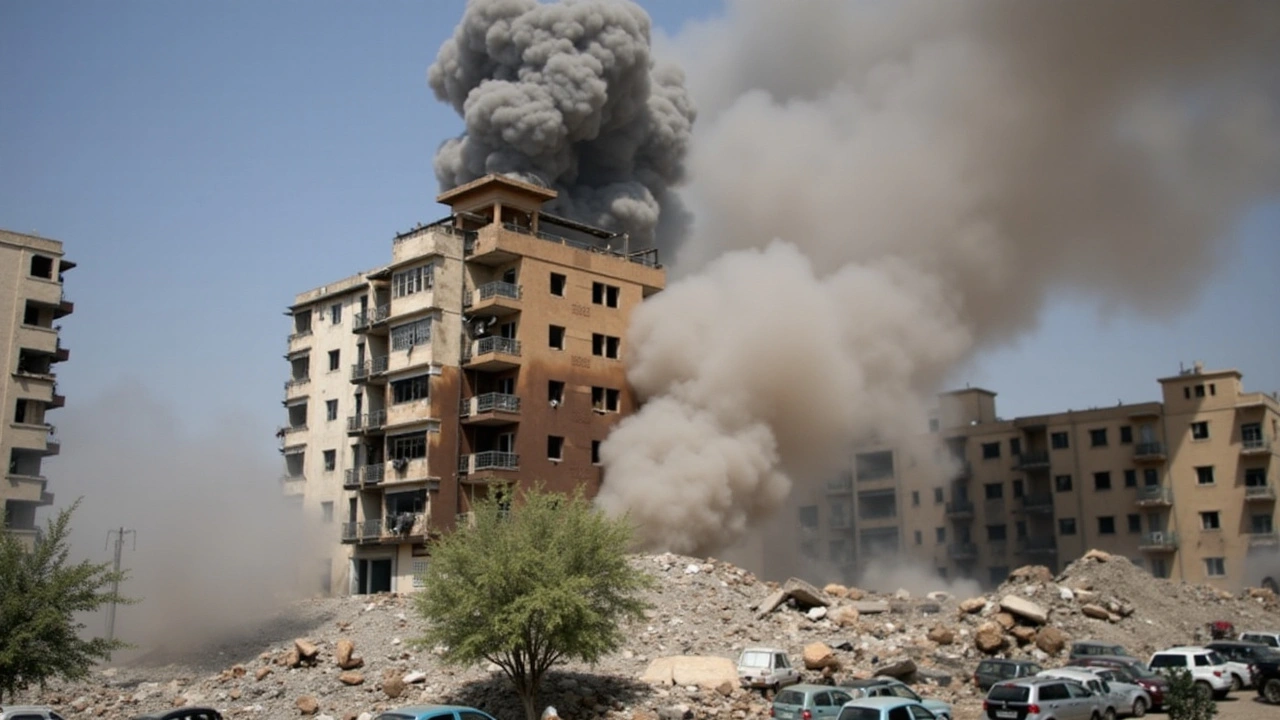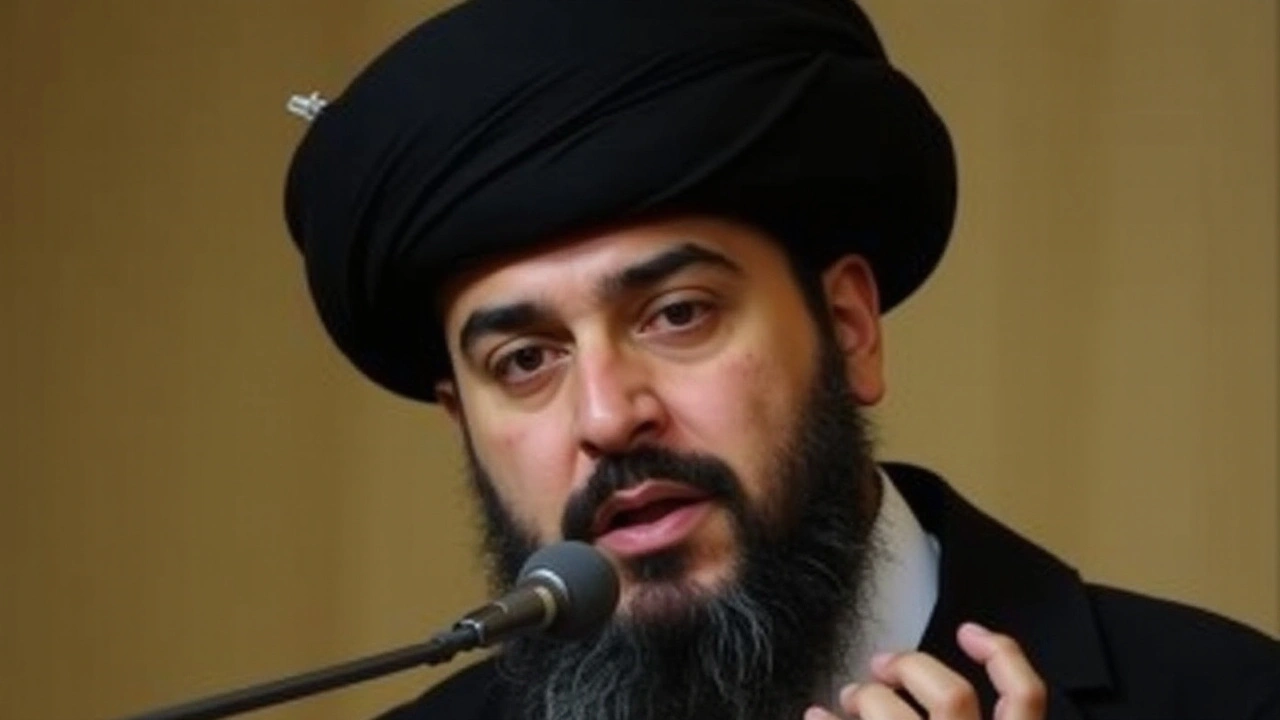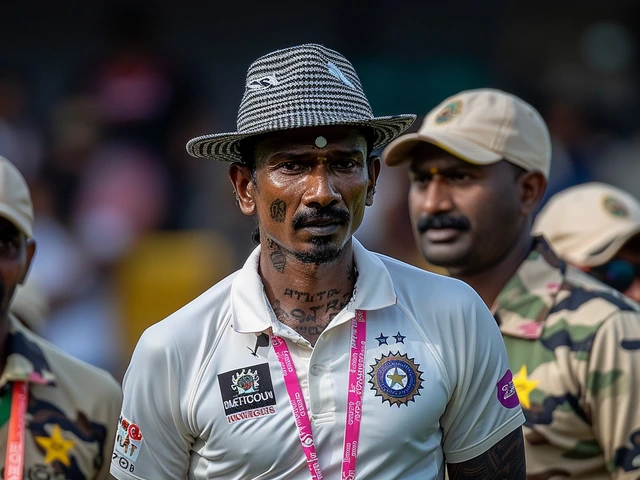Hassan Nasrallah: The Man Who Reshaped Hezbollah and Middle Eastern Politics
Hassan Nasrallah, the 64-year-old Lebanese cleric and formidable leader of the Hezbollah group, has reportedly been killed in an Israeli strike. This major development, confirmed by the Israeli military on Friday, raises significant questions about the future of Hezbollah and regional stability. On the other side, a source close to Hezbollah mentioned that the organization had lost contact with Nasrallah since Friday evening but stopped short of confirming his death.
The Rise of Nasrallah
N Asrallah's journey from Beirut's impoverished northern suburb of Burj Hammud to becoming one of the region's most influential figures is nothing short of remarkable. Born on August 31, 1960, in one of the most underprivileged areas of Beirut, Nasrallah's initial years were marked by hardship. His intellect and drive led him to study politics and the Koran in Iraq's Shiite holy city of Najaf. However, his academic pursuits were cut short in 1978 when he was expelled.
Undeterred, Nasrallah returned to Lebanon and immersed himself in the country's volatile politics. He gained invaluable experience with the Shiite Amal militia during the Lebanese Civil War before eventually co-founding Hezbollah in 1982, a group that would later redefine Lebanon's political landscape.
Leading Hezbollah to New Heights
Nasrallah took over the reins of Hezbollah at the tender age of 32 after the assassination of his predecessor, Abbas al-Musawi, by an Israeli helicopter gunship in 1992. His leadership transformed Hezbollah from a guerrilla faction into Lebanon's mightiest political force, wielding influence far beyond the nation's borders. Under his guidance, the group grew exponentially in both military capability and regional influence, thanks largely to significant backing from Iran.
The 2006 conflict between Hezbollah and Israel stands as a testament to Nasrallah's strategic acumen. Although the war resulted in heavy casualties and widespread destruction, it also showcased Hezbollah's military capabilities and bolstered Nasrallah's standing among his followers. His adept use of media and unwavering resolve turned him into a cult figure among Lebanese Shiites and his popularity surged across the Arab world.
Nasrallah's Dual Strategy: Arms and Aid
One of the notable aspects of Nasrallah's leadership was his dual strategy of bolstering Hezbollah's military strength while also engaging in extensive social welfare activities. Under his watch, Hezbollah became not just a military force but a socio-political juggernaut. The group invested in local charities, built hospitals, and established educational institutions in its strongholds. This multifaceted approach ensured that Hezbollah garnered grassroots support and was embedded deeply within the Lebanese Shiite community.
A Life in Shadows
N Asrallah's life was characterized by its clandestine nature. Rarely seen in public for fear of assassination, he maneuvered from the shadows, delivering televised addresses from undisclosed locations. Despite his reclusive lifestyle, his public speaking skills were phenomenal. He had an uncanny ability to swing from humor to fiery rhetoric, inspiring his 100,000-man militia and supporters alike.
While adored by his base, Nasrallah's decision to send fighters to support Syrian President Bashar al-Assad during Syria's civil war starting in 2011 attracted significant criticism. The involvement in Syria's conflict tarnished his image for some, and his popularity took a hit. Nevertheless, his influence on Hezbollah and the broader region remained formidable.

The End of an Era
With Nasrallah's reported death, the landscape of Middle Eastern politics may undergo significant shifts. Hezbollah's future leadership will face both challenges and opportunities as it navigates these new waters. The group's substantial military arsenal and deep-rooted political influence in Lebanon make it a significant player in regional geopolitics.
Nasrallah is survived by his wife and four children, leaving behind a contentious yet impactful legacy. His life and actions have not only shaped Hezbollah but have also influenced regional dynamics in the Middle East. The vacuum created by his absence might lead to a recalibration of power and alliances in the fiercely competitive and often turbulent Middle Eastern political arena.
One thing is certain: Hassan Nasrallah's name will be etched into the annals of Middle Eastern history, a complex figure whose impact will be debated for years to come.






15 Comments
Disha Thakkar
September 30, 2024 AT 04:58 AMNasrallah was basically a glorified gangster with a fancy beard and a TV studio. 🤡 Iran’s puppet, but hey, at least he gave free wifi to his neighborhoods. #ComplexLegacy
Abhilash Tiwari
September 30, 2024 AT 15:45 PMMan, the way he turned grief into power… it’s like watching a storm become a religion. Not saying I agree with everything, but you gotta respect the hustle. 🌪️
Anmol Madan
October 1, 2024 AT 03:01 AMYo so is this why my cousin’s cousin’s neighbor’s kid got recruited? Just sayin’... this whole thing feels like a soap opera written by someone who hates peace.
Shweta Agrawal
October 2, 2024 AT 19:13 PMI think what’s sad is how people on both sides see him as a hero or a monster but nobody really sees the kids caught in between. The hospitals, the schools… those mattered too
raman yadav
October 2, 2024 AT 22:08 PMLet’s be real nobody in this region is innocent. Nasrallah? Sure he had charisma but he was also the guy who turned a resistance group into a parallel state with nukes on the side. And now? The whole damn system is gonna implode like a bad TikTok trend. #HistoryRepeats
Ajay Kumar
October 3, 2024 AT 23:47 PMYou think this was an Israeli strike? Nah. This was a staged event. The Mossad doesn’t have the tech to hit a moving target in a bunker under 3 layers of concrete. This was internal. Someone in Hezbollah’s inner circle wanted the throne. The Iranians are already picking the next puppet. You think they let a 64-year-old guy run their proxy army for 30 years without a backup plan? Come on.
Chandra Bhushan Maurya
October 4, 2024 AT 07:56 AMI cried when I heard. Not because I liked him. But because I saw how he gave dignity to people who had none. When your whole neighborhood is rubble and the world forgets you, someone shows up with food, medicine, and a speech that makes you feel like you’re not trash. That’s power. Not guns. That’s soul.
Hemanth Kumar
October 4, 2024 AT 20:33 PMThe structural implications of Nasrallah’s demise are non-trivial. Hezbollah’s command-and-control architecture was heavily centralized around his persona. Without a clear succession protocol, the group is vulnerable to fragmentation, which may precipitate a cascade of regional realignments, particularly vis-à-vis Iran’s strategic calculus in the Levant.
kunal duggal
October 5, 2024 AT 23:34 PMFrom a geopolitical systems theory perspective, his death represents a critical node failure in the asymmetric warfare ecosystem. The vacuum may trigger a reversion to pre-2006 operational paradigms, but the institutional inertia of Hezbollah’s social infrastructure could sustain its influence for years. The real question: who inherits the supply chain?
Ankush Gawale
October 7, 2024 AT 08:15 AMMaybe we should all just take a breath. Nobody wins when leaders die like this. The real tragedy is the kids who’ll grow up thinking violence is the only language that matters.
रमेश कुमार सिंह
October 8, 2024 AT 11:09 AMHe was a man of contradictions - a priest with a rifle, a scholar who lived in shadows, a father who gave his people hope while dragging them into wars. Maybe the real legacy isn’t the bombs or the hospitals… but the fact that he made ordinary people believe they could be more than victims.
Krishna A
October 10, 2024 AT 04:39 AMYou think he was bad? Wait till you see who comes next. This is just the start. They’ll make him a martyr and then the whole region explodes. You think this is over? Nah. It’s just getting spicy. 🔥
Jaya Savannah
October 11, 2024 AT 22:03 PMSo he built hospitals… and then bombed schools? 😒 Like… congrats on the free meds, but also… you’re still the guy who started a war over a border crossing? 🤦♀️
Sandhya Agrawal
October 12, 2024 AT 01:39 AMI’ve been watching this for years. The Israeli strike? Too clean. Too perfect. They didn’t even release a video. And why did Hezbollah go silent right after? Coincidence? Or did they already know? Someone inside told them to shut up. I’m telling you - this was a coup. Not a strike.
raman yadav
October 12, 2024 AT 08:46 AMYou think the next guy will be better? Nah. He’ll be worse. The first one had charisma. The next one? He’ll have a bullet in his head before he even says his first speech. And then? Chaos. Pure chaos. This isn’t the end. It’s the opening scene.